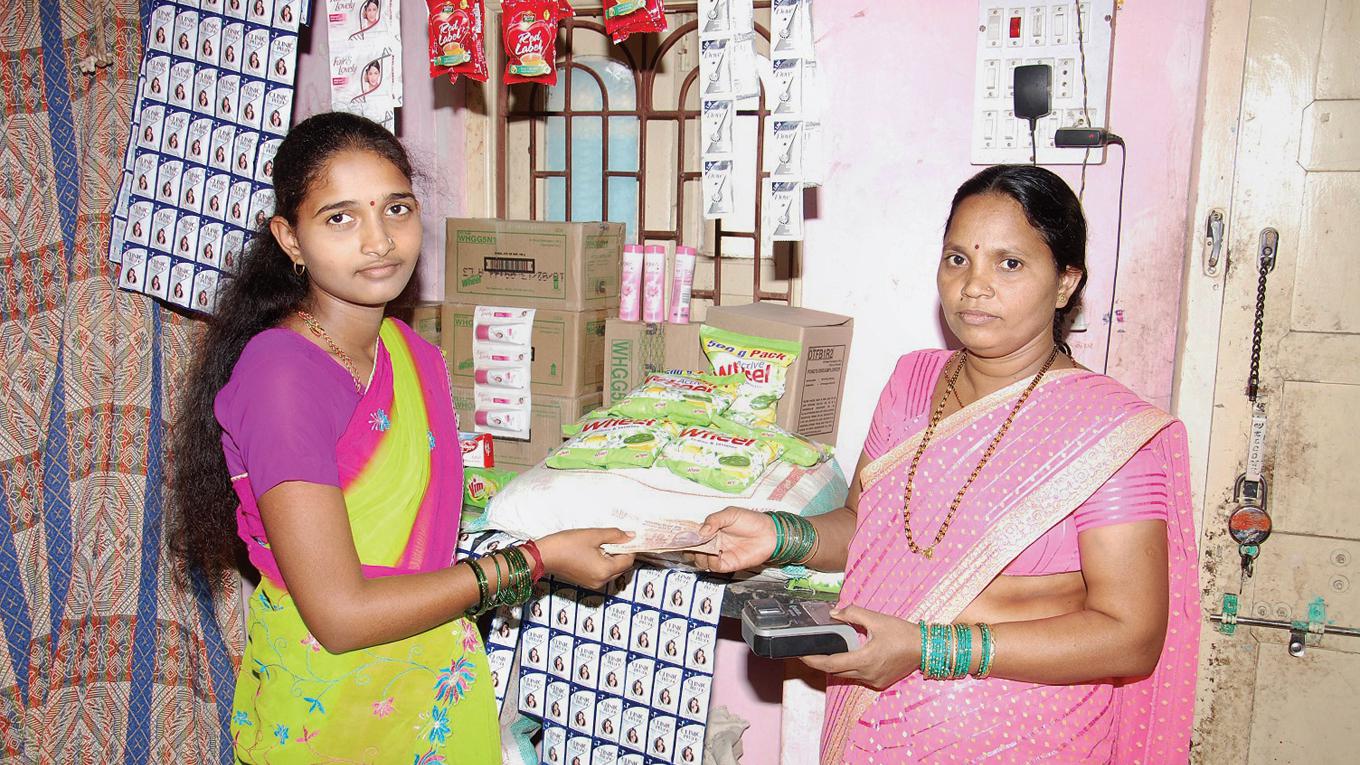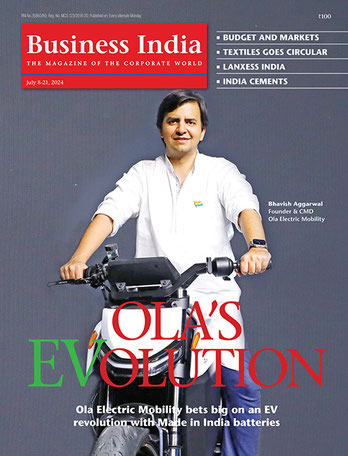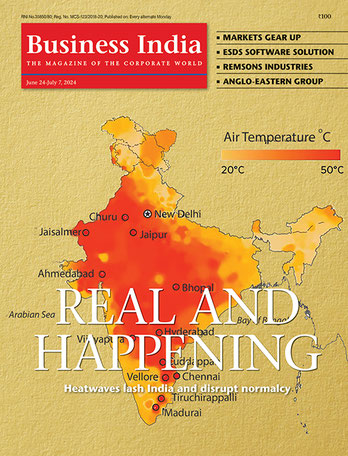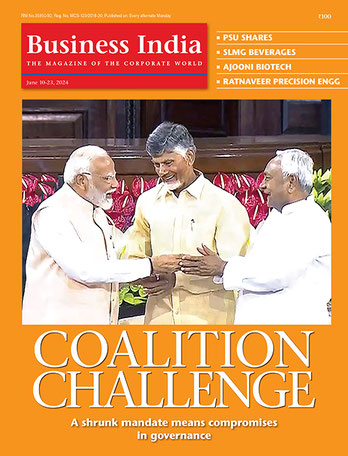-

HUL's project Shakti grooms women entrepreneurs
Through the Unilever Sustainable Living Plan (USLP), HUL endeavours to realise three big global goals: By 2020, the company will help more than a billion people take action to improve their health and well-being. By 2030, the company will halve the environmental footprint of the making and use of its products as it grows its business. By 2020, the company will enhance the livelihoods of millions of people. HUL’s efforts in the area of health and hygiene have so far reached over 15 crore people in India. HUL through its water, sanitation, and hygiene (wash) initiatives has been focussing on driving behaviour change programmes. Some of its home and personal care brands like Lifebuoy (handwashing programme), Domex (improved sanitation) and Pureit (providing safe drinking water) help to improve health through better hygiene practices. The company works to improve the taste and nutritional quality of the products using globally recognised dietary standards. As per the USLP commitment, by 2020, the company will double the proportion of its portfolio that meets the highest nutritional standards, based on globally recognised dietary guidelines. In 2018, 46 per cent of its total foods and refreshment portfolio met these standards. The company focuses on the reduction in salt levels, removing trans-fat, removing sugar, and reducing calories in ice creams. In 2018, HUL reduced CO2 emissions per tonne of production by 59 per cent compared to 2008. This reduction was achieved through initiatives such as enhanced usage of biomass-based fuels, installation of energy-efficient equipment at factories and the use of solar power. The company also focuses on increasing the share of renewable energy at the sites and reducing greenhouse gas emissions from its transportation activities, refrigeration and energy consumption in offices. In its manufacturing operations, water usage (cubic meter per tonne of production) was reduced by 55 per cent in 2018 compared to the 2008 baseline. Reduction in freshwater abstraction, implementation of captive rainwater harvesting and use in processes and utilities, increase in condensate recoveries, and maximising use of RO plants, contributed substantially to the reduction of water use in their manufacturing processes.
-
The company maintained ‘zero non-hazardous waste to landfill’ in all HUL factories and offices
Total waste generated from the factories reduced by 58 per cent in 2018 as compared to 2008. The company maintained the status of ‘zero non-hazardous waste to landfill’ in all HUL factories and offices. All non-hazardous waste generated at factories was recycled in environmentally-friendly ways.
HUL has also committed to all plastic packaging being reusable, recyclable or compostable by 2025. The company has collected and safely disposed of more than 20,000 tonnes of plastic in partnership with NGOs and start-ups in more than 20 cities across India. The company works closely with the government and other partners such as the United Nations Development Programme (UNDP) for end-to-end pilot projects for plastic waste management.
All tomatoes used in Kissan ketchup are sourced sustainably. A total of 586 tea estates in India are Trustea (sustainable tea code) verified, and a total of 290 tea estates in India are Rainforest Alliance certified. In 2018, 65 per cent of the tea sourced from India for Unilever brands was from sustainable sources. By the end of 2018, all of the chicory was sourced sustainably as all the Unilever chicory farmers in India were covered under the Unilever Sustainable Agriculture Code (USAC) implementation scheme.
By the end of 2018, HUL had over 40 per cent gender balance at a managerial level. The company undertakes many initiatives to build a gender-balanced organisation like granting paternity leave of three weeks in line with global paternity leave standard and six months of maternity leave. It also encourages work-life balance, agile working and flexibility. On-site daycare facilities, flexible working, job shares/splits and remote working arrangements are some examples via which women can easily balance the workload while enjoying motherhood, without incurring a loss of pay.
HUL’s Project Shakti was a rural initiative that targeted small villages populated by less than 2,000 individuals. The Shakti entrepreneur programme created livelihood opportunities for underprivileged rural women. Project Shakti benefited business by significantly enhancing HUL’s direct rural reach, and by enabling HUL’s brands to communicate effectively in media-dark regions. The Shakti Entrepreneur programme recognised that while micro-credit played a key role in alleviating poverty, its ability to do so depended on the availability of investment opportunities. Shakti contributed by creating profitable micro-enterprise opportunities for rural women. Armed with micro-credit, rural women became Shakti entrepreneurs: direct-to-home distributors in rural markets. This micro-enterprise offered low risks and high returns. The products distributed included a range of mass-market products especially relevant to rural consumers.
Moreover, HUL invested its resources in training the entrepreneurs, helping them become confident, business-savvy professionals capable of running their own enterprise. Shakti entrepreneurs typically earned between Rs600-800 per month. As most of these women were from below the poverty line, this earning often doubled their household income. By 2019, HUL has 1,00,000 Shakti micro-entrepreneurs across 18 states. They were selling products to over 40 lakh rural households in 1,60,000 Indian villages. It operated similar schemes in Bangladesh, Sri Lanka and Vietnam.
HUL has also been associated with a number of smallholder farmers through supplier partners, training them on good agricultural practices like drip irrigation, nutrient management, pest and disease management to improve their livelihood. More than 50,000 smallholder farmers have benefitted from Unilever’s innovative Responsible Farming Programme thus improving their livelihood.
The company has also helped improve the incomes of small-scale retailers. The Kwality Wall’s mobile vending initiative, ‘I am Wall’s’, has provided entrepreneurship opportunities to 14,566 people across India. This programme has helped vendors become self-sufficient micro-entrepreneurs selling ice creams on the move helping HUL reach more consumers on the street. In most cases, each vendor can make Rs7,000-8,000 a month. Some vendors have become distributors themselves, managing Rs2-10 crore in the ice cream business and earning upwards of Rs1,00,000 per month.
Biogas
BioEnergy will showcase its innovative biogas technology in India
Mobility
Ather aims to produce 20,000 units every month, soon
Green Hydrogen
German Development Agency, GIZ is working on a roadmap for a green hydrogen cluster in Kochi
Renewable Energy
AGEL set to play a big role in India’s carbon neutrality target



















